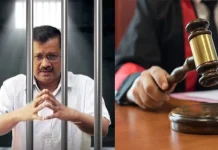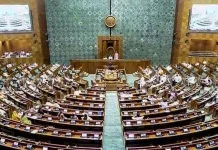Narendra Modi arrived at the Prime Minister’s office and took charge. As the first file, the file for disbursement of financial assistance to farmers was signed. This time Modi will not deviate from the practice of the main servant always being sleepless in the affairs of the country. The Prime Minister’s office will be awake and working day and night for the people of India. Prime Minister Narendra Modi arrived at the South Block office in Delhi after the swearing-in ceremony led by 72 Union Ministers yesterday evening and took office for the third time in a row. The first file he signed was related to the farmer welfare scheme ‘PM Kisan Nidhi’.
The newly sworn-in prime minister’s immediate agenda includes a cabinet meeting. Cabinet decision to convene Parliament will be formally requested by President Draupadi Murmu soon. This session will include the President’s address to both Houses outlining the government’s vision and priorities for the coming term. Now the question is who will be the Speaker of the Lok Sabha. TDP has also demanded from Andhra that they want the post of Speaker. BJP has clarified that there is no discussion and it will be decided by BJP with 240 MPs.
This time, the BJP lacked majority and its top leadership had to hold talks with allies, especially N Chandrababu Naidu’s TDP and Nitish Kumar’s JDU, to reach a consensus on ministerial posts. Still, the BJP managed to hold the swearing-in ceremony of the entire cabinet of 72 ministers four days after the results.
The main allies TDP and JD(U) got two ministerial posts each – a cabinet rank and a minister of state. However, an important question remains. Who will be the Speaker of the Lok Sabha? TDP and JDU, who have emerged as kingmakers in this election, are eyeing the Speaker’s post. BJP sources have informed both allies that they are not interested in exchanging it. Meanwhile, Rajya Sabha Deputy post will be given to JDU.
According to the Constitution, the Speaker’s post falls vacant immediately before the new Lok Sabha convenes for the first time. A pro-tem Speaker appointed by the President from among the senior members of the House administers the oath of office to the new MPs. Then, a speaker is elected by absolute majority from among the members of the House. Although there are no specific criteria for being selected as Lok Sabha Speaker, an understanding of the Constitution and parliamentary rules is an advantage. Sumitra Mahajan and Om Birla were Speakers in the last two Lok Sabhas when the BJP had a majority.
The post of Lok Sabha Speaker is a tough one. As one who controls the House, the post of Speaker is supposed to be non-partisan, senior Congress leader N Sanjeeva Reddy resigned from the Congress after being elected Speaker of the fourth Lok Sabha. The likes of PA Sangma, Somnath Chatterjee and Meera Kumar did not formally resign from the party, but confirmed that they belonged to the entire assembly and not to a single party. Chatterjee was expelled by the CPM for his non-partisan stance during the no-confidence motion against the UPA government in 2008.
In other words, the speaker should be able to move forward the activities of the government in the House by standing above party politics. The prime minister, who is the leader of the church, should make necessary facilities. To conduct the business of the church. Disciplinary violators should be stopped. It is also pointed out that all this will not happen if the leader of a local party is made the speaker






















